Vingegaard doing what Froome once did? Heijboer explains how realistic the overall victory in La Vuelta is
CyclingThursday, 24 August 2023 at 08:45
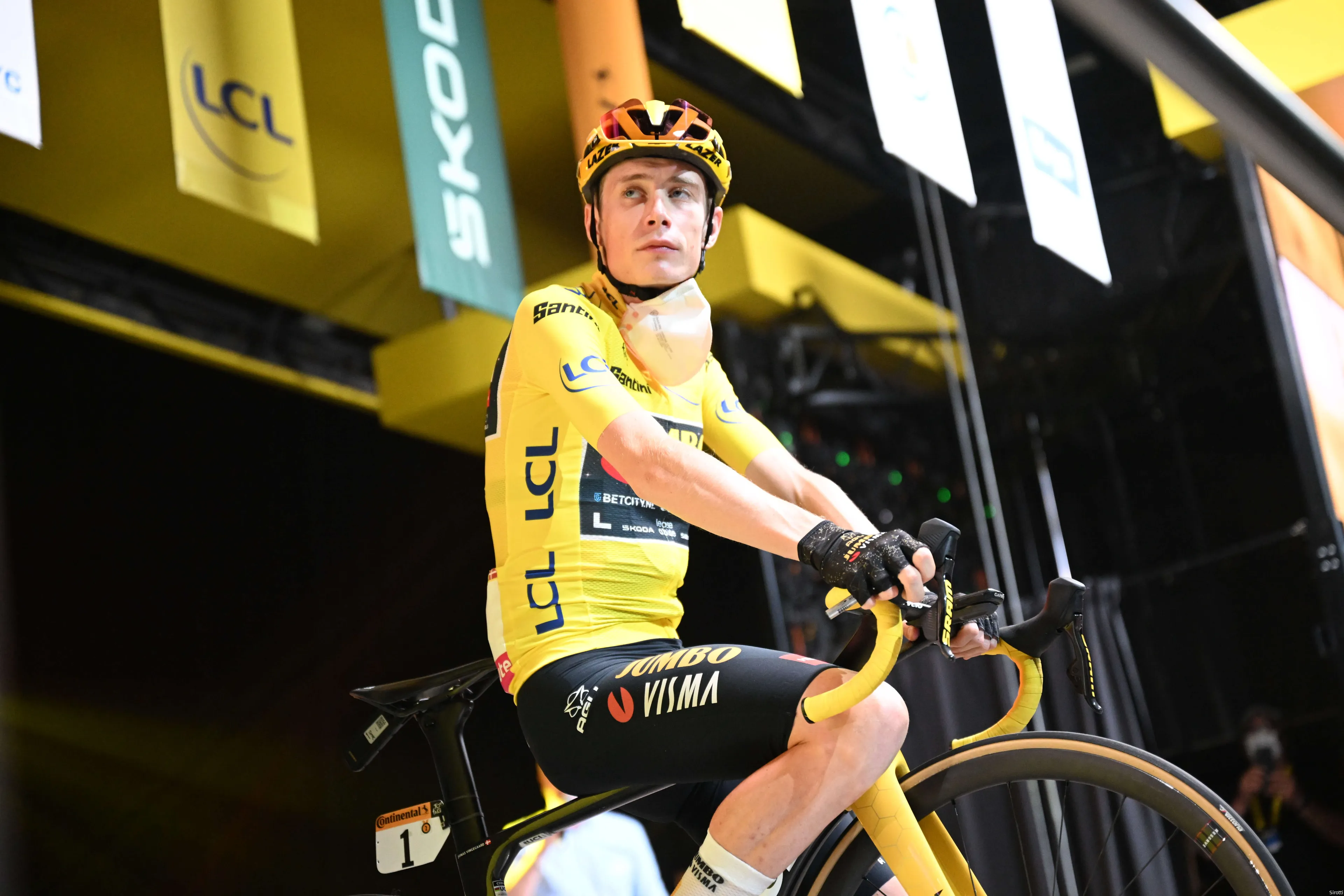
He has never ridden two grand tours in a single year before, yet Jonas Vingegaard tops many lists as one of the favorites for the Vuelta a España. After his convincing overall win in the Tour de France, Jumbo-Visma decided to stick with their original plan from last winter and have Vingegaard compete in two grand tours consecutively for the first time in his career. What are the odds that the Dane can actually go for the final victory? IDLProCycling.com discussed this with Jumbo Visma's performance coach Mathieu Heijboer.
Over the past few years, Jumbo-Visma has proven that if they have something in mind, they often succeed in realizing it. It's no coincidence that Primoz Roglic won the Vuelta in 2020 and 2021 after having already ridden the Tour. And it's no coincidence that Vingegaard won the Tour in 2022 and 2023 following a carefully crafted plan and corresponding training program. Wout van Aert is almost always there when he needs to be, as are all the other riders in yellow and black. Take Steven Kruijswijk, for example, who finished fifth in the Tour in 2018 and then fourth in the Vuelta. On that front, there is no reason to doubt: if Jumbo-Visma thinks they can do it, you can be sure they probably can.
Yet, the Dutch team is still keeping their options open. "It's realistic that he will achieve the same level in the Vuelta, but there's a greater risk factor," said performance coach Mathieu Heijboer earlier this month. "We believe in targeted preparation. If the preparation goes well, we also dare say that our riders will be at their peak performance level. For the Vuelta, this is a bit more uncertain, as the preparation time for this tour is simply shorter."
How deep did Vingegaard go in the Tour de France?
A week after his Tour victory, Vingegaard was back on the bike, and because there's a week longer gap between the end of the Tour and the start of the Vuelta this year—due to the Super World Championships in Glasgow—the Dane essentially had all the time he needed to prepare wproperly. The big question is: how deep did Vingegaard go in the Tour de France? His lead in Paris was more than seven minutes over second-place Tadej Pogacar, but it took three weeks of all-out racing to achieve that. "The Vuelta was always penciled in his annual planning, but we haven't said much publicly about it, because as far as we're concerned, the focus had to go to the Tour and we also wanted to reserve the right that if he came out of the Tour battered and broken, he wouldn't do the Vuelta. This year he came out of the Tour pretty well, and it was clear pretty quickly he wanted to do the Vuelta as well," says Heijboer about it.
"We first let him rest well after the Tour. He had a lot of celebrations and festivities in the first week, both with the team and in Denmark and with sponsors. Those were pretty busy days for him, but when everything settled down, he rested well and quickly resumed training," it continues. "Then we worked on basic endurance training, with obviously some intervals as well. This is mainly about maintaining because you can't build from scratch in such a short time. We trained the basic endurance again, and in this way, we try to enter the Vuelta with the form from the Tour."
In this, they didn't account for the Tour of Spain the whole year. The Tour was the main goal and in service of that, for example, the Walloon classics were scrapped from the spring schedule. The green light for the Vuelta only came when Vingegaard's legs responded well. "Overall, he has always felt quite good. There were some lesser days, but he felt especially very good during all the important training sessions. That's a good sign."
Read more below the photo.

After the Tour, it was time for Vingegaard to celebrate, seen here hugging Richard Plugge.
Whoever wants to win the Vuelta must be at their best for three weeks
Anyone looking at the Vuelta route will see opportunities for classification riders throughout the three weeks. This means you have to start well, but more importantly finish well. "Whoever wants to win the Vuelta will have to show an extremely high level of preparation. Of course, the final stages are also very difficult, but a lot happens before that," said teammate and co-leader Roglic, who has been preparing for this race for months, unlike Vingegaard.
Advantage: Vingegaard has been described for years as a man with a big engine, perhaps the biggest of all. When it gets tough for the rest, Vingegaard's legs are just getting started. In this regard, Heijboer hopes that his team leader can surprise the team. "I can't give a 100% guarantee because he has never done this before, but we're going for the win with the team."
The red jersey in Madrid could also end up on Roglic's shoulders, it is emphasized. "In the perception of the public, anything less than a win will not be good enough for Jonas. I hope it works out, and I don't think we could have done much different or better than we have. But performing at the top level twice for three weeks is not easy."
Read more below the photo.
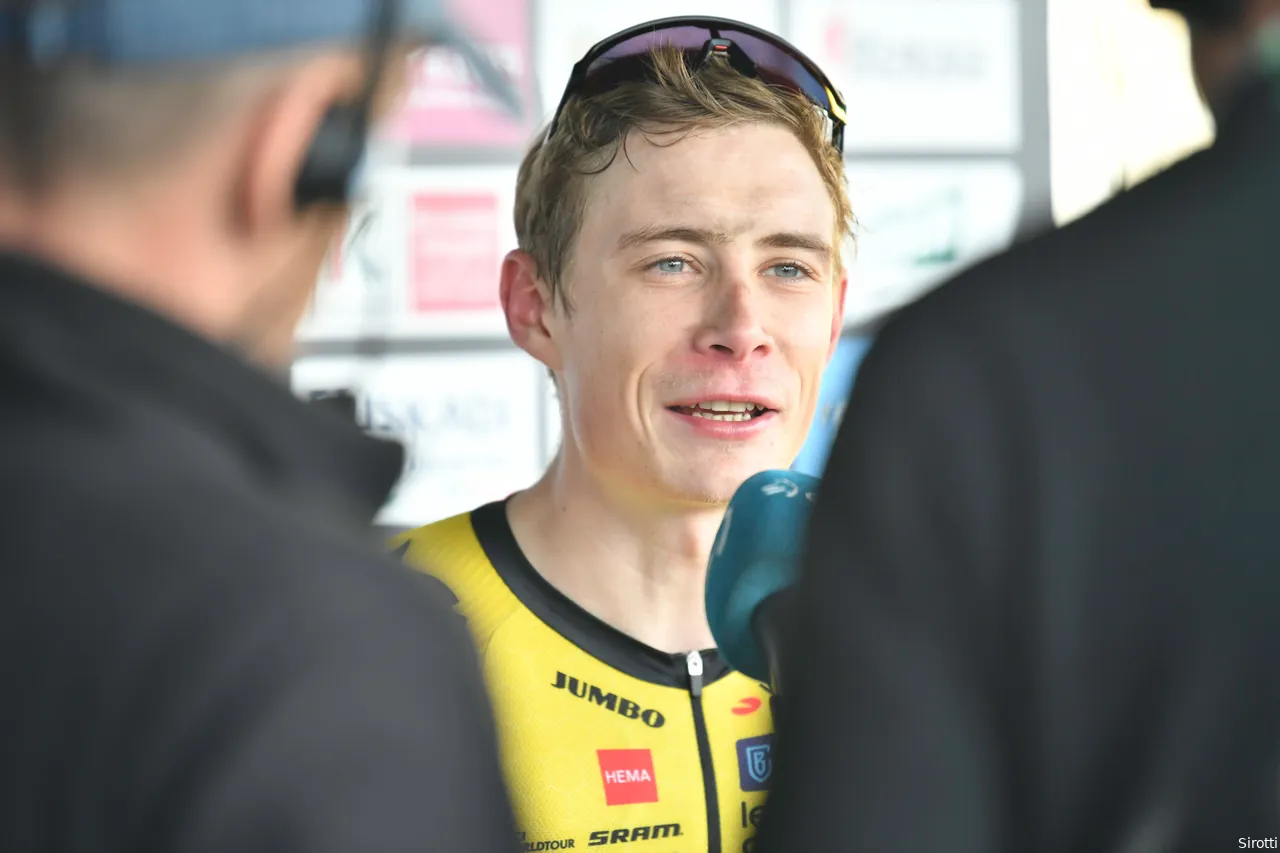
Jonas Vingegaard
Froome was the last to win the Tour and the Vuelta in 2017
The last person to successfully complete the Tour-Vuelta double was none other than Chris Froome, then in the black jersey of Team Sky. After winning the Tour for the fourth (and last) time in the summer, he went on to the Vuelta, which began just over three weeks later that year. With some supercompensation, Froome took the red jersey in the first week and only expanded his lead in the weeks that followed. There were some lesser moments, but just as often he striked back. His lead over second place Vincenzo Nibali was 2 minutes and 15 seconds in Madrid. The fact that he tested positive for excessive salbutamol levels in the third week was ultimately not held against him by the UCI and WADA.
Of course, the Tour-Vuelta combination is also popular, much more than the Giro-Tour double. Especially the Spaniards often do exceptionally well on their home soil. Alejandro Valverde finished in the top ten in both grand tours five times in one season during his impressive career. Often his Vuelta result was better than in the Tour. The same applies to Enric Mas, who rode in the top ten in the Tour in 2020 and 2021, and then did the same in the Vuelta. Joaquim Rodriguez and Nairo Quintana have also done it, although none of these riders came close to winning both. Froome is the only one who has done so this century. Bernard Hinault was the last to achieve this feat before Froome in 1978.
Winning both the Tour and the Vuelta, Heijboer knows what he's asking of Vingegaard. "The most important thing for us is that we win as a team. If Jonas finishes second or third, he has also delivered a top performance. But if Jonas wins, it would be a fairly unique achievement. The statistics prove that; only one rider has managed to do it this century. We have to be honest that he is a bit behind in terms of preparation compared to, for example, Evenepoel, Ayuso, or Roglic, because they have fully focused on the Vuelta. They have had this race in mind all summer. Therefore, I wouldn't say this will be a lucky shot, but there is a much larger element of uncertainty as to whether he can repeat that performance."
Write a comment
IDL-productions
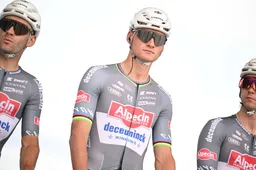
LIVE stage 11 Tour de France 2025 | Sorry peloton, after the rest day, van der Poel gets another opportunity
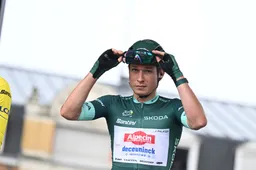
Philipsen on chat with Coquard before his crash, doubts about the rest of 2025, and why he, not van der Poel, aimed for green
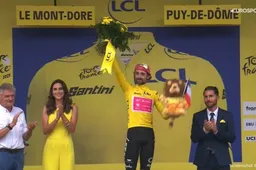
Course and results Tour de France 2025 | Yates wins, Healy in yellow: What’s in store for week 2?
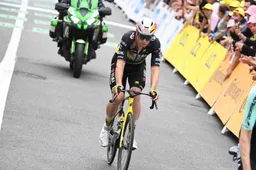
Van Aert skips sprint despite promise, Evenepoel breaks buddy Van der Poel’s heart: "During a race, we're not friends"
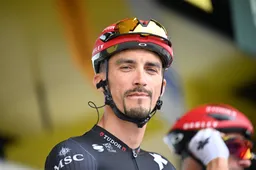
LIVE stage 10 Tour de France 2025 | With eight climbs on Bastille Day, it’s a golden chance for French riders to shine
Latest Cycling News
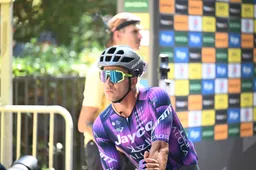
Groenewegen frustrated by missed chances in a "weird" first Tour week: "Even in a flat stage, Mathieu wants to attack"
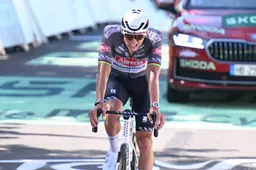
When van der Poel wants something, there's no stopping him, as Alpecin-Deceuninck knows only too well: "Of course it drives you crazy sometimes"
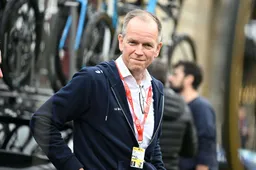
Plugge enjoys battle against UAE, but criticizes Tour organizers: "I would be ashamed, that's not okay"
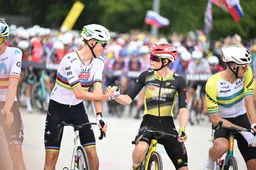
"He’s just bait," the verdict in the Visma vs. UAE battle: "The only rider who can really trouble Pogacar"

LIVE stage 11 Tour de France 2025 | Sorry peloton, after the rest day, van der Poel gets another opportunity
Popular Cycling News

Course and results Tour de France 2025 | Yates wins, Healy in yellow: What’s in store for week 2?
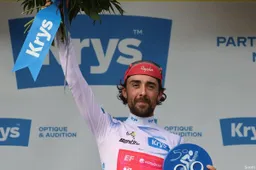
Fines, time penalties and jury report Tour de France 2025 | Heavy penalties and yellow cards on Bastille Day
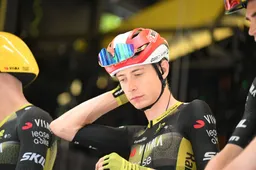
Fasten your seatbelts: Here’s what Pogacar, Vingegaard, Visma, and Evenepoel say about "the toughest day of the Tour"

LIVE stage 11 Tour de France 2025 | Sorry peloton, after the rest day, van der Poel gets another opportunity
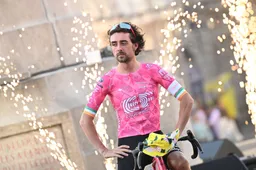
Classifications Tour de France 2025 | Healy claims yellow jersey as first mountain stage reshuffles the GC!
Latest Comments
- Maybe I was a bit disrespectful to Heiden. What he did was unique and exceptional but he wasn't the only one who combined those distances, nowadays it is just not possible and nobody competes in both distances. The same is true for cycling with for example the combination of Roubaix and de Tour de France. In Merckx era there were more riders who managed a top10 in both races than currently.Joostmehrtens19-06-2025
- Two old men shouting at pigeons in the park…JonS16-06-2025
- Out of touch old men hankering after their youth through rose tinted spectacles, their arrogance almost outshines their irrelevance. Turn the volume down, this modern stuff just isn't music like we used to sing...johnny20whales16-06-2025
- In talking speed skating, the days when Heiden did that, nobody else did that. And Eddy couldn't do the equivalent of the bike. His 200 on the velodrome was good, but not world competitive for gold. Heiden was in his own world on the ice, moreso than Eddy if we pretend Eric didn't have a very short career on the ice.Veganpotter16-06-2025
- They wouldn't have dropped HIM so easily.... the GOAT. They would have dropped the rest from that era easily thoughVeganpotter16-06-2025
- Merckx was able to win in a break away on a flat (sprinters) stage, what do you mean they did not drop that easily in his time. Vlaeminck won in the mountains and the classics, but now you need to specialise. The days that a Eric Heiden could win the sprint and the 10k and everything in between are long gone and cycljng is no differentJoostmehrtens16-06-2025
- Carsapaz and Del torro were not capable of chasing Yates. They paused and looked at each other because they didn't have it in them. Yates had kept his powder dry waiting for this stage and demolished both of them. They lost Yates won. Your second guessing is utter nonsense., if either felt they could close Yates down they would have , just like they did countless times for other riders. They blew up , Yates excelled.Uphillbilly05-06-2025
- Carapaz is full of it. He is absolutely irrelevant after a rant at del Toro. Isaac had no obligations to do anything for Carapaz. It should remind one of the saying that goes lke this: "If I jump off the bridge, are you going to jump too?" If Caapaz wanted to win the Giro he should have chased Yates with or without Isaac. And if del Toro could follow, then so be it. But it was Carapaz's choice to slow down and stare at Isaac. Isaac was on the radio at times and you can bet he was being told by the Team car to do just what he was doing. Did I like that he didn't set out after Yates himself, NO. But the 21 year old was probably being instructed to do what he did, otherwise you can bet we would have heard from UAE mgmt. that Isaac chose to ignore their orders. But what we did hear was they were happy with his result. Which I think was a terrible betrayal of their young rider, who I think was capable of more than that penultimate stage showed. The Giro finished on a truly sour note as far as I'm concerned, because it was not "raced" The most crucial stage of the whole 21 stage race was simply given away, playing games with the unwritten rules of bicycle racing. "Leaders jerseys responsibility" and all that nonsense. Just RACE! It was disgraceful.
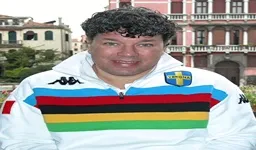 reemmo004-06-2025
reemmo004-06-2025 - Well this aged like fine milkGlyn31-05-2025
- This is just mean-spirited.agnessk29-05-2025